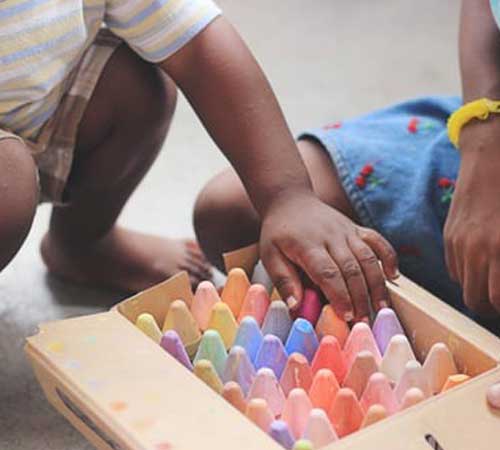It’s impossible to totally protect your child from infections.
What you can do, however, is to model healthy habits and take certain steps to help reduce your child’s risk of infections from school.
7 things you can do include:
1. Encourage A Healthy Diet
Shop a variety of fruits and vegetables, whole-grain products, and lean meats for your household.
Always go for fresh, organic produce whenever you can and offer your child/ren healthy snacks, such as carrot sticks, when they go to school.
As opposed to junk, eating healthy will provide their bodies with anti-oxidants to help wade off infections and diseases.
If your child refuses to eat their veggies, (most kids do) keep offering them anyway.
Make healthy food more interesting for picky eaters by positioning fruit into a smiley face on their plate, or try out other vegetable options and preparations as well.
A child who dislikes straight steamed vegetables may love it when it is topped with a bit of shredded chicken.
2. Get Them To Drink More Water
Experts say a child should drink the number of 8 oz. water glasses that correspond to their age (up to a limit of 64 oz. total at 8 years of age).
So, a 4-year-old child ought to drink 4 glasses containing 8 oz. of water per day. And this total does not include milk, juice, or other liquids, just water.
Please note that your child should only start drinking water after they reach 6 months of age.
Prior to this, they should take formula and/or breast milk.
A child’s brain is composed of 80% water, therefore, staying hydrated is particularly important for optimal cognitive development and protection from some nasty bacteria.
Pro tip: As your child grows older, teach him or her to look at their urine to make sure it is more clear than yellow. If they spot yellow, then they should grab a glass of water.
3. Establish A Sleeping Schedule
Depending on the specific age, it is important for your child to get around 10 hours of sleep every night.
Going to sleep at the same time each evening will help achieve this.
Stick carefully to this routine and only adjust the bedtime if it is absolutely necessary.
Sleep is vital to health in many ways. It allows the body to recover quickly from illness or fight off potential infections.
It also boosts metabolism.
Good sleep can calm their nerves and result in a healthier mindset as well.
The recommendation is that preschoolers get between 10 to 13 hours, elementary and middle-schoolers between 10 to 13 hours, and teenagers between 8 to 10 hours.
Of course, this is dependent on personal preference as well.
Your child may simply prefer to sleep more or slightly less than average, and that’s fine.
4. Vaccinations
Vaccinations (or immunisations) will prevent your child from catching some of the more serious infectious diseases.
Once your child has been vaccinated for a specific disease their body will fight it more effectively if they get an infection.
Reach out to your doctor or pediatrician and ask about all the recommended vaccinations for your child, to confirm they are up to date.
It may be a reason they are prone to getting infections from school.
5. Teach Them To Always Wash Their Hands
With the coming of COVID-19, this, obviously has become a global anthem.
But washing your hands with soap and water is one of the best ways to prevent germs and bacteria from spreading.
So, teach your child to wash their hands:
- Before eating
- After coughing, sneezing, or blowing their nose
- After going to the toilet
- After playing with a pet, animal, or their classmates’ toys
- After picking up something from the floor or touching something dirty (e.g. chewed pencils, used tissue, etc.)
- Whenever they appear in need of a wash
Before your child starts school, nursery, or daycare for the first time, take a look around together and show your child where they can wash their hands.
Gently explain that your child must wash his hands often so that they do not get sick and miss out on school.
6. Talk To Their Teacher Or School Administrator
Share your concerns with your child’s class teacher or school management.
The least they can do is to sensitize all on some of the ways germs can spread—through the air when we cough or sneeze.
They should encourage the students to use a tissue when they cough, sneeze or have a runny nose.
Here are other interesting articles you should read
– 7 Ways To Take Your Kids Around The World Without Travelling
– What To Do If Your Child Is Being Bullied At School
Apart from using tissue, they should emphasize disposing of it in the waste bin, and wash their hands thoroughly with provided soap or a hand sanitiser.
Teach your child to do the same and ensure that there’s always a hand sanitizer in their school bags.
7. Keep Them Away From School When Necessary
If your child is too ill to take part in group activities or they’ve come down with an infection that requires them to be excluded (e.g., chickenpox, mumps, measles, or flu), have them stay at home and not go to school.
This will stop germs and bacteria from being passed on to other children and give your child time to recuperate.
Find more resources on parenting here.




